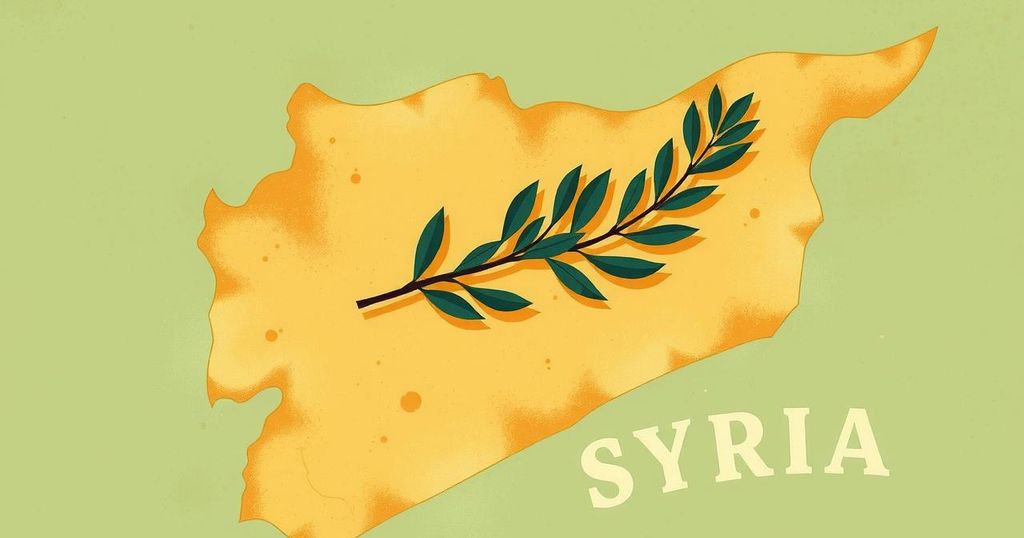Syria’s Interim Government Formation: New Leadership Amidst Transition Challenges
Syria’s interim President Ahmed al-Sharaa has announced a new transitional government dominated by allies, featuring one woman, amid calls for an inclusive political transition following the overthrow of Bashar al-Assad. Key positions remain with close associates, while notable figures from the opposition are also included. Concerns about power concentration and minority protections have arisen in light of these developments.
Syrian interim President Ahmed al-Sharaa has announced a new transitional government, replacing the caretaker authorities following the ousting of Bashar al-Assad. This newly appointed government consists predominantly of close allies and includes one woman, marking a significant step in the country’s transitional period amid escalating calls for inclusivity following recent sectarian violence.
The new cabinet features prominent figures, with Foreign Minister Assaad al-Shaibani and Defence Minister Murhaf Abu Qasra retaining their positions. Anas Khattab has been appointed as interior minister, and veteran opposition figure Hind Kabawat, notable for being a member of Syria’s Christian minority, becomes the first woman to serve as Minister of Social Affairs and Labour under Sharaa.
Raed al-Saleh, the leader of the White Helmets organization known for their rescue efforts in rebel-held areas, has taken on the role of Minister of Emergency Situations and Disasters. The current Islamist-dominated authorities have declared commitments to protecting minority groups, particularly following violent confrontations between Assad’s Alawite community and Sunni militia forces.
In December, a caretaker government led by Mohammad al-Bashir was established to pave the way for this new cabinet. Sharaa, a crucial figure in the overthrow of Assad and leader of the Islamist group Hayat Tahrir al-Sham (HTS), was appointed as interim president in late January and has since enacted a constitutional declaration outlining a five-year transitional period. Although this transition denotes progress, experts have cautioned that it centralizes power under Sharaa without providing adequate safeguards for minority rights.
The formation of the new transitional government in Syria marks a pivotal moment in the nation’s attempt to rebuild amidst challenges following the civil war. As President Ahmed al-Sharaa leads this new cabinet with a focus on allies and inclusivity, the future governance will face scrutiny regarding minority protections and overall stability. Ultimately, the success of these political changes hinges upon inclusivity and reconciliation within Syrian society.
Original Source: www.hindustantimes.com




Post Comment